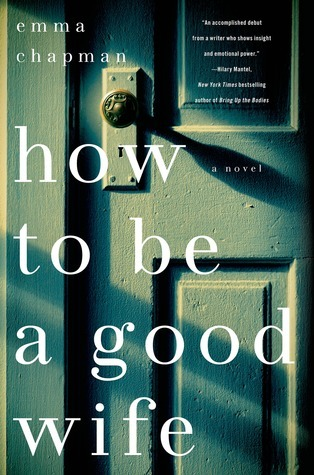How to Be a Good Wife by Emma Chapman
But now, something is changing. Small things seem off. A flash of movement in the corner of her eye, elapsed moments that she can’t recall. Visions of a blonde girl in the darkness that only Marta can see. Perhaps she is starting to remember—or perhaps her mind is playing tricks on her. As Marta’s visions persist and her reality grows more disjointed, it’s unclear if the danger lies in the world around her, or in Marta herself. The girl is growing more real every day, and she wants something.
Review: Marta is a housewife who has been married for years to her schoolteacher husband, Hector. She greatly misses her only child, her son Kylan, who was the center of her life for many years but now is grown and lives away. Marta seems adrift and decides to stop taking her medication. She begins to start seeing things, visions of a thin and sickly young girl that no one else seems able to see, and also begins to act erratically. At first, Marta seems like a standard unreliable narrator whose mental health is unraveling. But is something more sinister at play? Is Marta finally remembering long-suppressed memories from her past?
This was a slow burning psychological thriller that ultimately was deeply unsettling. The novel takes almost too long to build to its crescendo and as a reader I became restless and wanted it to get on to the point. But the final section of the novel, was worth the slow build. I'm not sure Marta is particularly likeable as a character. She is unpleasant to her family at multiple points but if her "memories" are indeed true, she certainly has due cause. Over the course of the novel, my perception of her husband also shifts from one of a portly older teacher to suspicions of something much more sinister, along with his wife. But again, is this just Marta manipulating her reader's perspective?
The beauty of this novel, and also the infuriating part, is that the ending is left open with no true conclusion. Maybe Marta is crazy or maybe she's telling the truth, and no one believes her. I personally felt like she was telling the truth, but I love that Chapman leaves it open to interpretation.
Stars: 4



Comments
Post a Comment